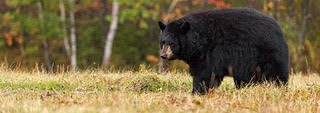Got Bait?
By Glen Wunderlich
The Natural Resources Commission (NRC) has proposed to remove the deer baiting and feeding ban in the Lower Peninsula, but hold on there, Quick Draw. For now, it’s just a proposal and a vote will be taken June 9 in Lansing at the NRC meeting.
According to Mary Dettloff, DNR Public Information Officer, the change would allow hunters and other animal lovers to place two gallons of bait (or feed, if you will) per hunting/feeding spot – the same regulation that is currently in place in the Upper Peninsula, and as had been in effect before the ban in 2008. The only exception would be the bovine tuberculosis area in northeast lower Michigan. In addition, the proposal directs the DNR to spend $50,000 this year on planting wildlife food plots on state-owned hunting land in the bovine tuberculosis area.
This is great news for the instant-gratification hunting fraternity that doesn’t allow itself enough time to pursue whitetail deer through more traditional means. And, to me, it’s perfectly understandable: Baiting makes the pursuit easier.
Oh, I’ve heard all the rationalization on the matter that tends to pit hunter against hunter, but honestly, the two-gallon limit seems acceptable. Gone are the days when truckloads of sugar beets, carrots, or apples would be dumped at chosen sites. If anything was bad for hunting’s image and wildlife itself, it was that type of baiting.
What made bait piles bad boiled down to two issues: One was purely ethical and the other related to physiology of the deer herd.
Unregulated baiting causes deer to concentrate in small areas for prolonged periods of time, where the potential to spread disease increases through close contact with each other. Whereas, in more natural settings, deer constantly move about as they graze or browse. The two-gallon limit, which still mandates spreading the food sources in larger areas, rather than in piles, addresses this issue appropriately.
From an ethical standpoint, there will be no resolution to the tactic of baiting. Anti-hunters are always opposed to anything that makes it easier to kill animals. I’m not one to pretend that by using the term “harvest” in place of “kill” makes hunting more palatable to the animals-first crowd. Nothing apart from veganism will satisfy them, so why even try?
With that said, even the most ethical hunters are always striving to simplify the taking of game. Faster firearm cartridges, faster arrows, crossbows, scopes, you name it, are all examples of technology meant to get the job done effectively. And, to that end, the better the tools for the task at hand, the more ethical (and, yes humane) practices become.
As long as hunters permit each other to use legal means to hunt, which are in essence approved of by wildlife biologists and scientists, it would be best for us to develop a “can’t-we-all-get-along attitude.” Legal hunting methods are, and should continue to be a matter of choice.






